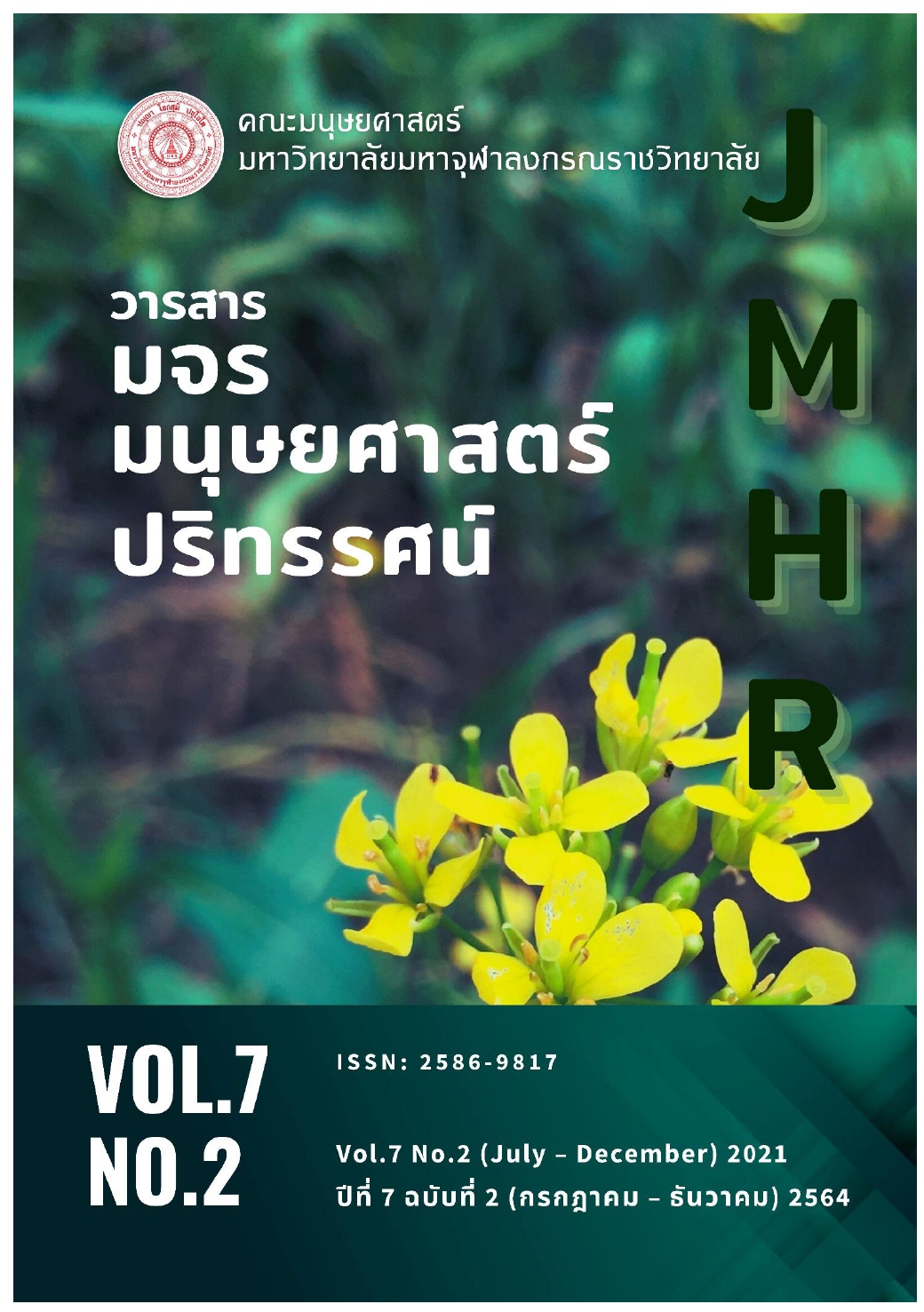การพัฒนาการปรับตัวทางสังคมของผู้สูงอายุด้วยการปรึกษาเชิงบูรณาการทฤษฎีและเทคนิคโดยใช้ทฤษฎีอัตถิภาวนิยมเป็นฐาน
คำสำคัญ:
การปรับตัวทางสังคม, ผู้สูงอายุ, การปรึกษาเชิงบูรณาการทฤษฎีและเทคนิค, ทฤษฎีอัตถิภาวนิยมบทคัดย่อ
การวิจัยครั้งนี้มีวัตถุประสงค์ 1. เพื่อพัฒนาแบบวัดการปรับตัวทางสังคมของผู้สูงอายุ 2. เพื่อศึกษาผลของโปรแกรมการปรึกษาเชิงบูรณาการทฤษฎีและเทคนิคโดยใช้ทฤษฎีอัตถิภาวนิยมเป็นฐานด้วยการปรับตัวทางสังคมของผู้สูงอายุ กลุ่มตัวอย่างที่ใช้ในการวิจัย ได้แก่ ผู้สูงอายุที่อาศัยอยู่ในเขตกรุงเทพและปริมณฑล แบ่งการวิจัยเป็น 2 ระยะ ระยะที่ 1 จำนวน 400 คน และในระยะที่ 2 จำนวน 20 คน แบ่งเป็นกลุ่มทดลอง 10 คน และกลุ่มควบคุม 10 คน เครื่องมือที่ใช้ในการวิจัย ได้แก่ แบบวัดการปรับตัวทางสังคมผู้สูงอายุ สถิติที่ใช้ในการวิเคราะห์ข้อมูล ได้แก่ ค่าความถี่ ค่าร้อยละ คะแนนเฉลี่ย ค่าเบี่ยงเบนมาตรฐาน ตำแหน่งเปอร์เซ็นไทล์ คะแนนมาตรฐาน Z คะแนนทีปกติ คะแนนทีมาตรฐาน เกณฑ์ปกติสเตไนน์ และการวิเคราะห์ความแปรปรวนแบบวัดซ้ำ ผลการวิจัยพบว่า
1. แบบวัดการปรับตัวทางสังคมของผู้ของสูงอายุโดยรวมอยู่ในระดับปานกลาง มีค่าความเชื่อมั่นด้วยค่าสัมประสิทธิ์แอลฟาของครอนบาค ระหว่าง .89 ถึง .93 และมีค่าอำนาจจำแนกรายข้อระหว่าง .22 ถึง .88 คะแนน การปรับตัวทางสังคมผู้สูงอายุโดยรวม คะแนนเต็ม 195 คะแนน มีคะแนนดิบ อยู่ระหว่าง 87 ถึง 191 คะแนน ตำแหน่งเปอร์เซ็นไทล์ (PR) อยู่ระหว่าง 0.13 ถึง 99.75 คะแนน Z-score อยู่ระหว่าง -3.26 ถึง 2.52 คะแนน T-score อยู่ระหว่าง 17.44 ถึง 75.19 และคะแนน Normalized T-score อยู่ระหว่าง 41 ถึง 57 เมื่อแบ่งคะแนน T-score ออกเป็น5ช่วงของระดับการปรับตัวทางสังคมผู้สูงอายุพบว่าผู้สูงอายุที่มีการปรับตัวทางสังคมในระดับน้อยที่สุด มีคะแนนดิบต่ำกว่า 119 คะแนน ระดับน้อย มีคะแนนดิบระหว่าง 120 ถึง 137 คะแนน ระดับปานกลาง มีคะแนนดิบระหว่าง 138 ถึง 155 คะแนน ระดับมาก มีคะแนนดิบระหว่าง 156 ถึง 173 คะแนน และระดับมากที่สุด มีคะแนนดิบตั้งแต่ 174 คะแนนขึ้นไป
2. ผู้สูงอายุกลุ่มทดลองที่ได้รับโปรแกรมการปรึกษาเชิงบูรณาการทฤษฎีและเทคนิคโดยใช้ทฤษฎีอัตถิภาวนิยมเป็นฐาน มีการปรับตัวทางสังคมสูงกว่ากลุ่มควบคุมที่ไม่ได้รับการปรึกษา ในระยะหลังทดลองและระยะติดตามผล อย่างมีนัยสำคัญทางสถิติที่ระดับ .05 และ
3. ผู้สูงอายุกลุ่มทดลองที่ได้รับโปรแกรมการปรึกษาเชิงบูรณาการทฤษฎีและเทคนิคโดยใช้ทฤษฎีอัตถิภาวนิยมเป็นฐาน มีการปรับตัวทางสังคมในระยะหลังทดลองสูงกว่าระยะก่อนทดลอง อย่างมีนัยสำคัญทางสถิติที่ระดับ .05 แต่ในระยะติดตามผลไม่แตกต่างกันกับระยะก่อนทดลอง
เอกสารอ้างอิง
กรมกิจการผู้สูงอายุ. (2562). รายงานประจำปี 2562 กรมกิจการผู้สูงอายุ. กรุงเทพฯ: กรมกิจการผู้สูงอายุ กระทรวงการพัฒนาการสังคมและความมั่นคงของมนุษย์.
“_______”. (2563). สถิติผู้สูงอายุของประเทศไทย 77 จังหวัด ณ.วันที่ 31 ธันวาคม 2563. สืบค้นเมื่อ 4 มกราคม 2564 จาก https://www.dop.go.th/th/know/side/1/1/335
ดวงมณี จงรักษ์. (2552). ทฤษฎีการให้การปรึกษาและจิตบำบัดเบื้องต้น (พิมพ์ครั้งที่ 2). กรุงเทพฯ: สมาคมส่งเสริมเทคโนโลยี (ไทย-ญี่ปุ่น).
บรรลุศิริพานิช. (2548). คู่มือผู้สูงอายุฉบับสมบูรณ์. กรุงเทพฯ: พิมพ์ดี.
เพ็ญนภา กุลนภาดล. (2560). การปรึกษาครอบครัว (พิมพ์ครั้งที่ 2). ฉะเชิงเทรา: แฮมคอมพิวออฟเซท.
ไพรัตน์ วงษ์นาม. (2543). หลักการวิจัยทางการศึกษา. ชลบุรี: ภาควิชาวิจัยและวัดผลการศึกษา คณะศึกษาศาสตร์ มหาวิทยาลัยบูรพา.
ภัณฑิลา สังคหะ. (2561). การใช้หลักไตรลักษณ์ในการปรับตัวทางสังคมของผู้สูงอายุในเขตเทศบาลนครหาดใหญ่ อำเภอหาดใหญ่ จังหวัดสงขลา. วารสารนาคบุตรปริทรรศน์, 10(2): 21-36.
อาทิตยา สุขมาก. (2557). การพัฒนาคุณภาพชีวิตผู้สูงอายุตามหลักไตรสิกขา: กรณีศึกษาสถานสงเคราะห์คนชราเฉลิมราชกุมารี (หลวงพ่อเป็นอุปถัมภ์) (วิทยานิพนธ์ปริญญามหาบัณฑิต. มหาวิทยาลัยมหาจุฬาลงกรณราชวิทยาลัย. กรุงเทพฯ.
Birch, S. H., & Ladd, G. W. (1997). The teacher-child relationship and children's early school adjustment. Journal of School Psychology, 35(1): 61-79.
Lapwotrh, P., Sill, C., & Fish, S. (2001). Integration in Counselling & Psychotherapy: Developing a Personal Approach. London: SAGE.
May, R., & Yalom, I. (2005). Existential psychotherapy. In R. J. Corsini & D. Wedding, (Eds.), Current Psychotherapies (8th ed.). (pp.295-327), Brooks/ Cole.
Yamane, Taro. (1967). Statistics, an Introductory Analysis (2nd ed.). New York: Harper and Row.






